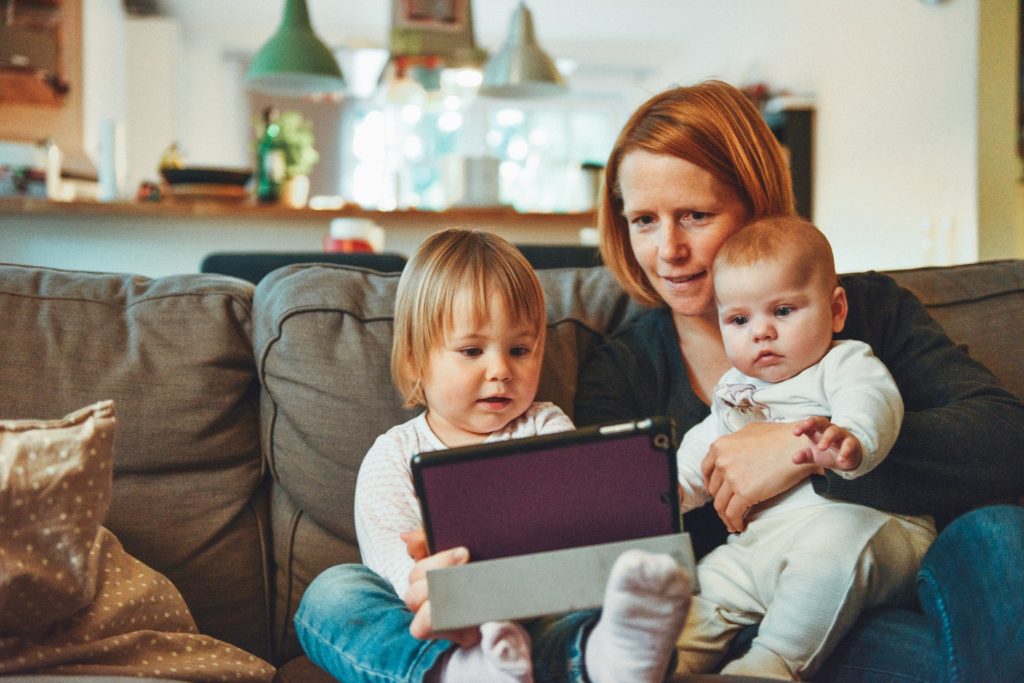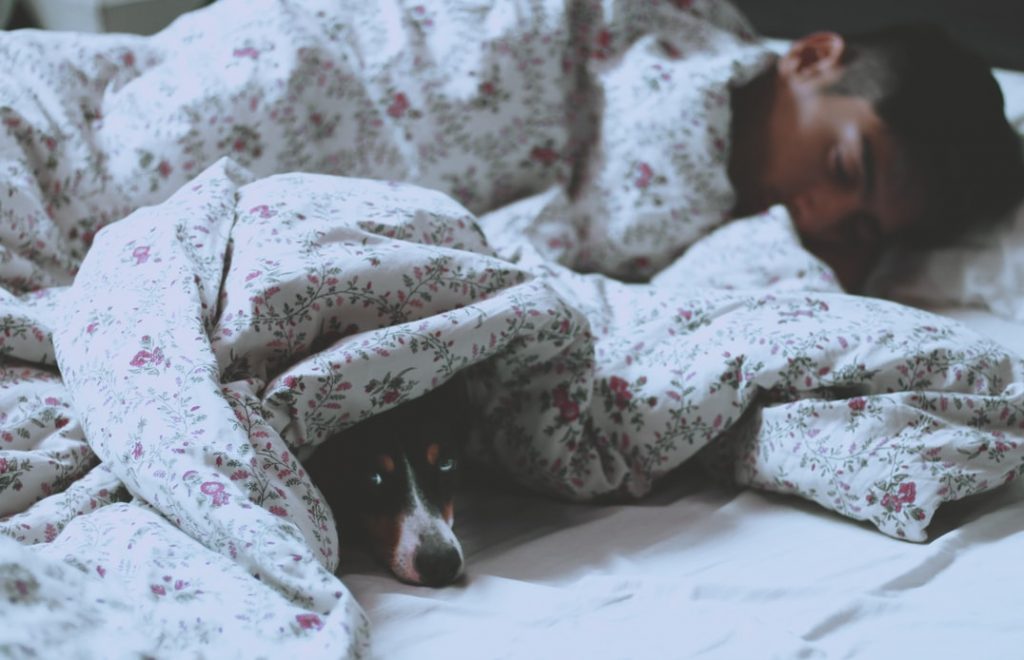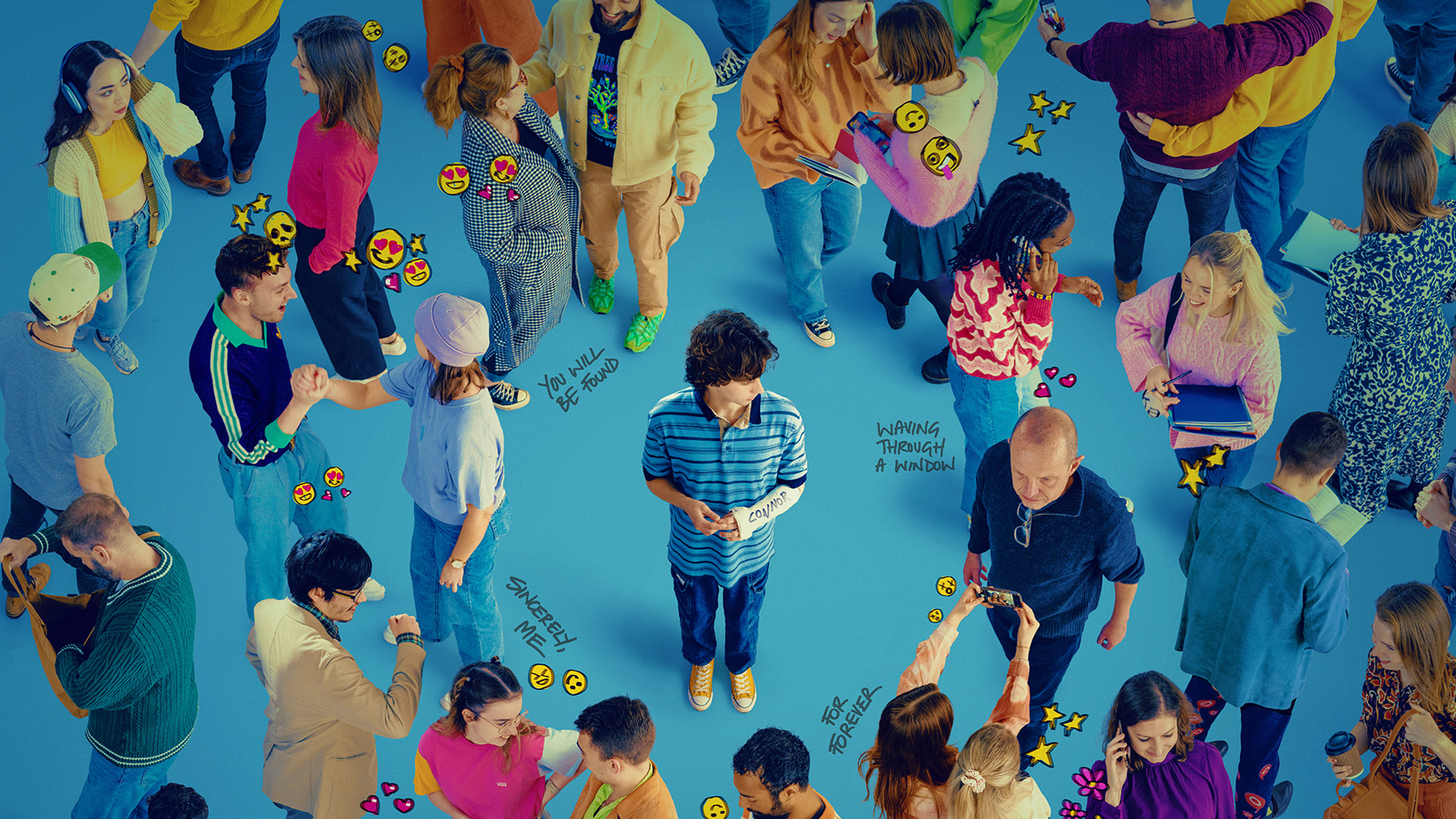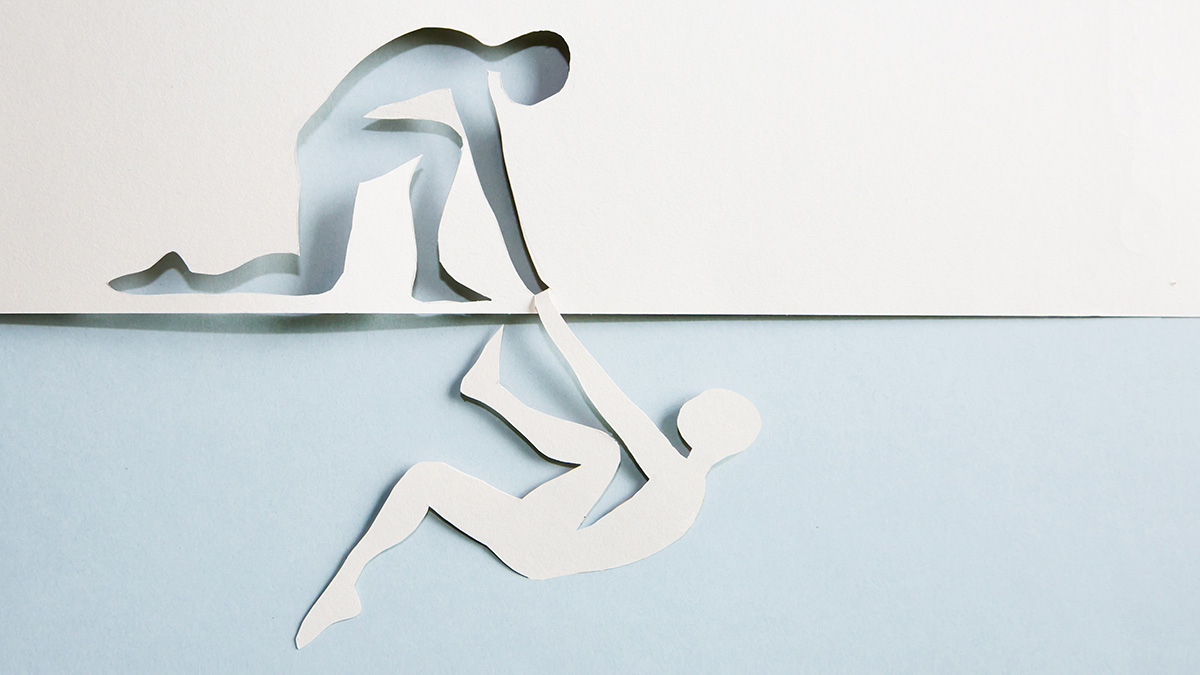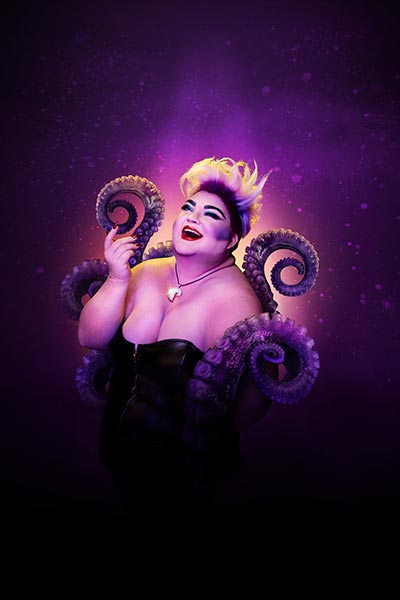

My Simple 7-Step Calm Plan
11 min read
Share
Here’s my simple 7-step calm plan to keep safe, sound and sunny. “Many of us, at present, are cut off from the people we love. You might be worried about a vulnerable relative or friend or have children at home with the challenge of home-schooling. Everyone is facing their own challenges at present. I know I am. So, I thought I’d share 7 tips that I have found helpful, in the hope that you might too”. Andrew Howard, Blackpool Grand Theatre
This Coronavirus event will go down in history and I, for one, want the memories for our children and families to be good ones. So, I invite you to put aside your anxieties and focus on some positive steps which may help you take ownership in these bonkers times and feel a bit more empowered.
NB: this information is not a substitute for official or professional advice from the government, medical or health professionals
Join me with my simple 7-step calm plan…
Share. Make sure you talk to others about how you’re feeling and how you plan to deal with any upcoming difficulties – before they happen.
You are not alone. This is a global problem and many, many people all around the world are sharing the fear, anxiety and uncertainty that you may be feeling. But we are all individuals, and it is how YOU are going to deal with your personal challenges that counts most.
I’m asking people to be kind to each other (partners, friends, family, and colleagues). Disagreements are more than probable. You and others may lose your/their temper. People may say things that hurt or get your back up.
TIP: Try these Short Term and Long Term Strategies.
The best advice seems to be to talk, and keep talking, calmly. Talk through your worries with someone you respect. Talk through how you’re going to tackle a problem or worry. Get their point of view. Try to step outside your problem and see it from a different perspective. Remember: people deal with stress and stressful situations differently and your way isn’t the only way. Listen. Be prepared to compromise or change your minds.
TIP: Try these Fast-Acting Stress Reliefs.

Remember the children. They have eyes and ears. It’s better to keep them well informed about what’s going on, rather than them picking it up in the ether.
Whether your communicating in person or over the phone, children can always hear, so make sure you’re relaxed before you speak. Give them time to talk. Listen to their thoughts and feelings. If you get into a stressful situation over the phone or virtually, pause, count to ten and take deep breaths.
Be open and honest with your children – it’s a challenging time and things are changing daily, if not hourly. Keep yourself informed with ‘good’ news sources. Always try to talk to your child/children when you are feeling calm and rational. If you are anxious, children will pick upon this and it may unsettle them.
Children learn from how those around them deal with conflict and anxiety. So, if annoyances grow in the household (or are heard over the phone) with bickering or moaning afterword’s they may pick up and copy this behaviour. It is very important that they see you apologise and talk things through with sincerity.
You can’t underestimate how much it means to a child for a parent/guardian/adult to say; ‘I’m sorry, I’m (someone else is..) really worried about something – it’s me being silly, I’m wondering how I’m going to manage this and that, it’ll be ok’.
You don’t need to go into detail, just a simple short acknowledgement and apology – explain that it wasn’t them, or their fault.
TIP: Get or give a HUG. It means a lot. Plus, when you hug someone, oxytocin (also known as the “cuddle hormone”) is released. Oxytocin is associated with higher levels of happiness and lower levels of stress.
Find a stress outlet
We have lots of ideas for you to relieve your stress; long baths, baking, yoga, storytelling, maybe even cleaning (but keep each activity short, so there’s variety through the day). Stress busters are now more important than ever before. Find what takes your mind off things. Find your release.
It’s important for us all to think about what are ‘our coping mechanisms and plans’. Think about what’s possible now, with the lockdown. Your normal stress-buster activities might not be possible at home, like the gym, tennis, swimming etc. Maybe find an online alternative to Yoga or a YouTube fitness class.
Do make sure you get the kids involved, that’s really important. Amused and busy children are less of a worry. Blackpool Grand has published a guide Keeping Kids Entertained During Lockdown. Or you could have a look at their 30 Fun Things to Do When You’re Stuck Inside.
It’s important to try and block out distractions. Be ‘present’ when relaxing. Watch a film with the children or a partner, talk about it, blank everything else out and engage with others throughout. Put your phone away. Get treats and snacks and a jug of juice on a tray, so you can sit in peace and not having to move.
TIP: Exercise can also be used to enhance well-being in people who already feel mentally healthy. Increased physical activity has been found to enhance mood, improve energy levels, and promote quality sleep.
Photo by Alexander Dummer on Unsplash
Stay connected – support networks (find new ones!)
Many of us are creating new networks. Your street, your walking group, colleagues, family and many more. Find out what support you can offer each other. Just remember to step out, virtually, from time to time. Otherwise you can get overwhelmed. Maybe do a group chat each day at a set time, for a set period. Manage it, don’t let it manage you.
Don’t be afraid to ask for help or to offer it.
Video chats are a great alternative to actual face-to-face contact – get kids involved. Is someone you know great at entertaining, playing an instrument, singing? See if you could organise an activity like a sing-along or a puppet show with your child. Or take pictures or video of your children’s artwork. Share them with loved ones like grandparents/aunts/uncles.
TIP: A great positive project that you and your children could do together is creating rainbow window art. Show off your child’s talent to your neighbours.
Photo by William Iven on Unsplash
Seriously limit your News updates
I find that one of the biggest stress-inducers is the huge amount of news constantly coming at us from every medium: TV, radio, websites or social media. Rationing news consumption and muting alerts is important. Maybe just catch the PM daily update on the evening news.
For coronavirus advice, use trustworthy websites – such as GOV.UK or nhs.uk. And there, are of course, the Grand’s Good News Roundup, helping you to offset some of the scary stuff.
Something to remember, children hear and pick up on headlines that are dramatic. They respond to repetition – that’s how children’s programmes work.
If they ask, ‘what’s going on?’, don’t hide. Like I said earlier: acknowledge them, explain simply but avoid telling them too much.
Photo by Claudia Mañas on Unsplash
Routine is important
It’s probably fair to say that all usual routines went out the window a few weeks ago. Work, social, family, friends – all of it!
However, it’s never more important for us to stick to some kind of the regular activities. Things we can do that to give us some structure: daily exercise, food shopping, sticking to regular meal times, education (using resources provided by your school and other free online resources). And, of course, sleeping patterns (children shouldn’t be staying up to the early hours or sleeping in).
I’ve found creating a ‘weekly family planner’ and putting it up on the fridge, where everyone can see it, helpful. Structure is great for us all and having lots of things to look forward to, or simply ‘get done’, really do help to change our frame-of-mind positively. Children need comfort too and when we give a child comfort and love, they feed it back to you. We comfort each other!
Photo by Gift Habeshaw on Unsplash
Hey, cut yourself some slack
One of the best thing you can do is to ‘cut yourself some slack’. These aren’t the easiest of times for anyone. Even the most positive. We need more than ever to #BeKind to ourselves as much as to others.
No one’s perfect, no one! Being a parent’s a struggle at the best of times: juggling school runs, sports kits, school uniforms, homework, birthday parties, parents’ evenings…the list is endless!
Take a breath. Some of us will get into a routine faster than others. Don’t compare yourself to your friends and neighbours. Don’t get too hung up on what mum’s advice is. Do it…, do it at your pace…, do it your way..!
I should know, we can’t always be a constant ray of sunshine or always be planning things to do. Take each day as it comes. If you need or want a break, that’s your body saying it needs it.
Check out Relate’s useful advice for families during the coronavirus outbreak and visit the BBC Action Line for details of other organisations that can help.
NB: the information above is not a substitute for official or professional advice from the government, medical or health professionals.
Blackpool Grand
Take a look at what’s on at Blackpool Grand Theatre this Autumn / Winter 20/21
Blackpool Grand set out a COVID-Community Communication Programme (CCCP) during the Coronavirus pandemic. Our aims were simple, to CONNECT, COMFORT and UPLIFT. We would Connect people by offering tutorials on communication tools like Zoom and conduct community face-to-face meetings (book readings, youth groups and more). Comfort through stories of heritage, memories and storytelling, and to Uplift visitors spirits through laughter and exercise. Please do enjoy and if you can afford to donate please do.
The information in this story is accurate as of the publication date. While we are attempting to keep our content as up-to-date as possible, the situation surrounding the coronavirus pandemic continues to develop rapidly, so it’s possible that some information and recommendations may have changed since publishing. For any concerns and latest advice around COVID-19, visit the World Health Organisation. If you’re in the UK, the National Health Service can also provide useful information and support, while US users can contact the Center for Disease Control and Prevention.
Main image: Photo by Jeremy Perkins on Unsplash



